Plant refers to machinery, equipment or apparatus used for an industrial activity. In construction, plant typically refers to heavy machinery and large equipment used on construction sites – think cranes, excavators and bulldozers. Construction plant is used in many types of construction projects, from rail and road works to housebuilding.
An essential part of large and complex construction projects is getting sites ready for building and moving materials from A to B. This is the primary function of construction plant and why it is so important; without it, work would rarely be able to get off the ground.
Plant often represents one of the largest costs during construction projects, so it is common for it to purchased second hand or hired. In fact, the UK plant hire industry is worth over £4 billion to the British economy.
Skilled operatives are required to install, use and maintain construction plant on site – keep reading to find out more about plant and whether a career in the sector may be right for you.
Some commonly used types of construction plant
There are many different types of plant used within construction, each designed to carry out specific jobs and serve a particular function. Let’s explore some of the more common examples:
Excavators
The main types of plant excavator are hydraulic, dragline, trenching machine (skimmer) and multi-purpose – they are versatile heavy equipment used to dig trenches and holes, dredge rivers and much more. Primarily used when there is a need to excavate and load soil.
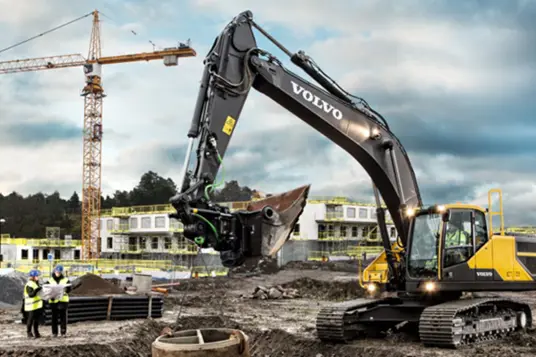
Cranes
Cranes are used to lift and move materials and other building materials from place to place. They can range from a simple rope pulley to a tower crane fixed to the top of a skyscraper. The type of crane used depends on the type and weight of load being lifted, the height and horizontal distance that needs to be covered and other factors such as the time period and degree of mobility required. Broadly, cranes can be classified as mobile, static and tower.
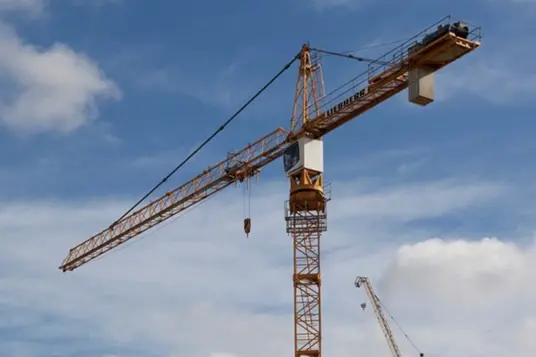
Forklift trucks
Forklift trucks are used to transport materials on pallets or packs, and are a common feature in warehouses and industrial sites. In construction, their primary function is in the goods storage process, moving lighter loads which don’t require heavy plant.
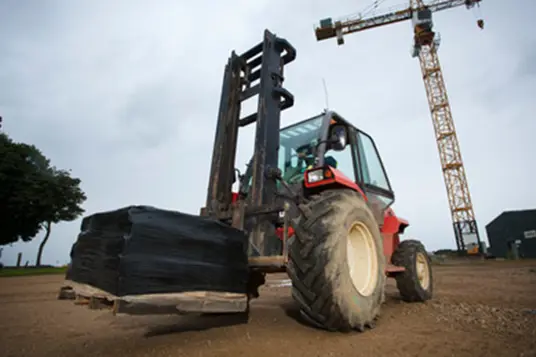
Breakers
Breakers are powerful percussion tools used for breaking up concrete or rock. They are typically used in construction to demolish buildings, break up pavements or roads and break frozen ground.
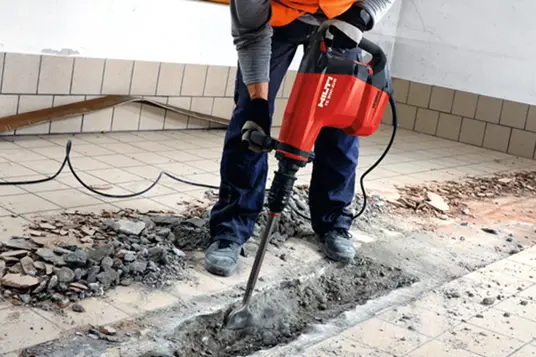
Concreting plant
An essential component of any site, concreting plant refers to the mixing, distribution and placing of concrete. This can be anything from a small drum mixer to dumper concrete trucks.
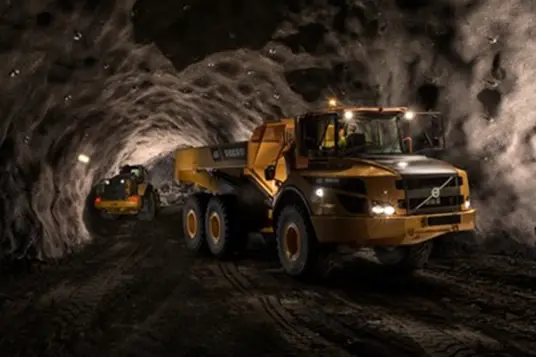
Earth moving plant
Earth moving plant is commonly used in construction to transport and place excavated soil. This includes dumper trucks, the largest example of earth moving plant which is used mainly for transporting soil, bulldozers, which strip construction sites and push earth from point to another, scrapers, which cut, collect and move large quantities of unwanted materials from the site, and tractor shovels, otherwise known as loaders, which scoop up waste material and soil and deposit into transport vehicles such as dumpers.
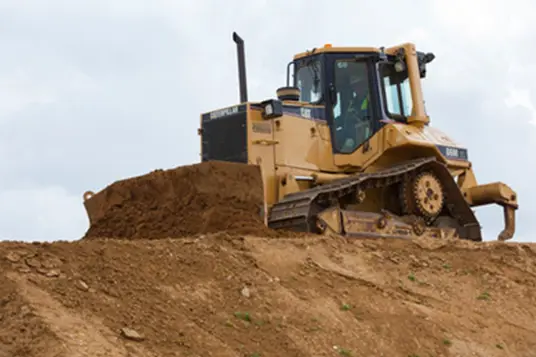
Piling plant
Piling plant is equipment involved in the laying of deep foundations, columnar elements usually made up of reinforced concrete or steel. These machines typically ‘hammer’ the foundations into the ground.
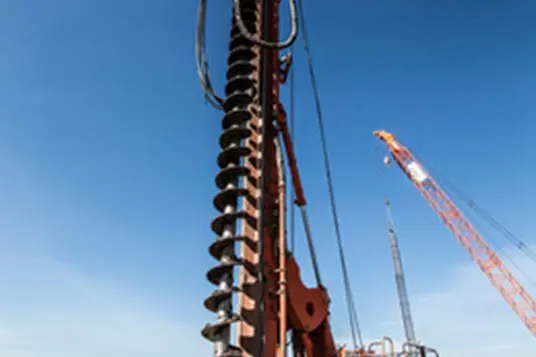
What is plant downtime?
Plant downtime refers to when the plant is not operating. This may be scheduled downtime such as essential maintenance, or unscheduled due to breakdown or a lack of work. Construction companies are keen to minimise construction downtime as much as possible as it is one of the main causes of lost productivity.
Find out more about a career in plant operations
The construction plant sector is a budding, fast-paced part of the construction industry which is quickly growing, offering many rewarding, well-paid career paths. Let’s take a look at a few:
Plant and mechanical engineer
Plant and mechanical engineers inspect, design, install, or repair machinery and equipment to ensure it is well maintained, working safely and running smoothly.
Plant mechanic
Plant mechanics repair and maintain heavy construction machinery – regularly inspecting dumpers, cranes and more to ensure they are safe to use, often using specialist equipment.
Plant operator
Plant operators use heavy machinery to dig, lift and move heavy machinery on building sites. Typically, a plant operator will specialise in one piece of equipment, such as an excavator or giant crane.
Plant manager
Plant managers ultimately have responsibility for all heavy machinery on a construction site. They create reports and document all operations on site to keep it running smoothly.
Plant inspector
Plant inspectors are responsible for overseeing and coordinating the accounting and financial activities relating to a factory plant – often using data to assess the overall performance of the plant.
More information on plant operations
Apprenticeships are a great way to get started in the construction industry – you can find out more about the construction plant operative apprenticeship here.